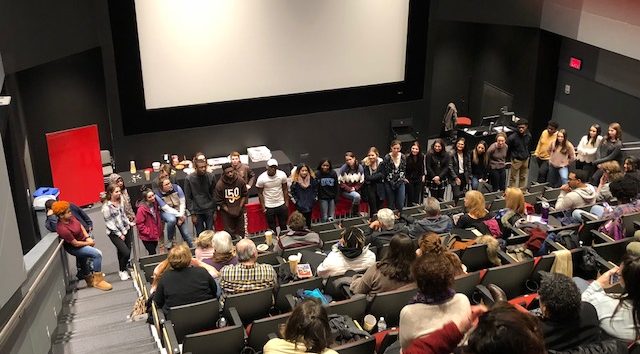I can and will leave a place I film (a way, a refugee camp, etc.) when the people I film cannot.
Kirsten Johnson’s line jumped off the page and into my heart as soon as I read it. Even though there are other moving and significant lines, this one spoke to me because Johnson was recognizing her privilege. This is something I often think about as I try to understand the fights raging through the U.S. and the globe concerning race, sex, and sexual orientation. My privilege is always that of an insider; it seems on any issue of social injustice, I am on the inside. My rights and opportunities are not being threatened, rather it is the people marginalized to the fringes of society. Thus, I often ask myself as a film maker, what right do I have to represent these issues of injustice? Is this my fight to wage? Ultimately, Johnson’s line speaks to these questions by acknowledging that her privilege is, on the surface, unfair. The previous and following lines are also very telling: “The people I film are in immediate and often desperate material need, but I offer little to nothing material” and “I traffic in hope without the ability to know what will happen in the future”.
To me it seems that all Johnson can offer most days is a lofty sense of hope. She cannot feed hungry children, clothe cold families, or bring aid to war torn communities. Instead, she brings a magnifying glass of sorts, hoping to bring exposure to a hidden part of the world. The best case scenario then is that Johnson can change someone else’s perspective. Knowledge is power, and spreading the word is often times the only reasonable goal a documentarian can set for themselves. A critical rule of fundraising is to never use your own money, and after reading Bernard it is abundantly clear that finances can be a harrowing challenge. Thus, to expect a film maker, that is someone who intimately examines issues and injustice, to solve those problems in real time seems to be both a natural and unrealistic instinct.
When I make a film, I too will be able to walk away from the war zone of injustice. The truth is as passionate as documentarian’s are, for many western film makers this is just a day job. There is a markedly different life waiting after the project is finished. Thinking about the other side, where there is no escape, Kirsten Johnson’s words resonate with the truth and compassion of a documentarian that I can probably learn many things from.
